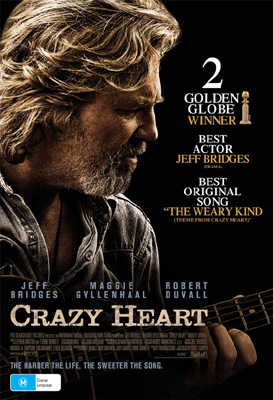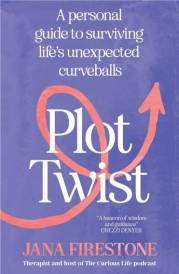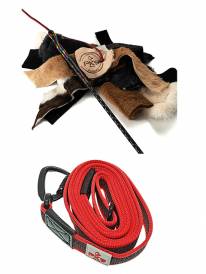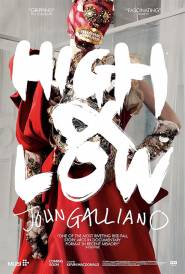Crazy Heart T Bone Burnett And Stephen Bruton

CRAZY HEART
Cast: Jeff Bridges, Maggie Gyllenhaal, Colin Farrell and Robert DuvallDirector: Scott Cooper (feature directorial debut)
Written By: Scott Cooper (based on the novel by Thomas Cobb)
Produced by: Scott Cooper, Rob Carliner, Robert Duvall, Judy Cairo, T-Bone Burnett
Executive Producers: Jeff Bridges, Michael A. Simpson, Eric Brenner, Leslie Belzberg
Genre: Drama
Four-time Academy AwardŽ nominee JEFF BRIDGES stars as the richly comic, semi-tragic romantic anti-hero Bad Blake in the debut feature film CRAZY HEART from writer-director Scott Cooper.
Bad Blake is a broken-down, hard-living country music singer who's had way too many marriages, far too many years on the road and one too many drinks way too many times.
And yet, Bad can't help but reach for salvation with the help of Jean (MAGGIE GYLLENHAAL), a journalist who discovers the real man behind the musician.
As he struggles down the road of redemption, Bad learns the hard way just how tough life can be on one man's crazy heart.
Release: February 18, 2010
T Bone Burnett And Stephen Bruton Write Bad Blake's Songs
The storytelling of CRAZY HEART started with the script, but that was truly just the beginning. Bad Blake is all about his music, which is why the songwriting of CRAZY HEART was as central as the storytelling - and had to be 100% real and believable as coming from inside the soul and experience of a well loved, if washed-up, country singer. There was no one better to do that than T Bone Burnett, who wrote many of Blake's songs along with the late Stephen Bruton. "We knew that if we were going to take on a movie about a country singer, we had to get the music absolutely right," explains Rob Carliner. "That's why we wound up going to T Bone. Without him, this movie likely wouldn't have happened - and it could never have happened as authentically."A legendary songwriter in his own right and a fervent champion of American roots music, Burnett has made his mark all over contemporary pop culture, on such indelible soundtracks as O BROTHER WHERE ART THOU? and WALK THE LINE, as well as a dizzying array of recordings for such diverse artists as Elvis Costello, Roy Orbison, Tony Bennett, k.d. lang, Alison Krauss, Counting Crows, the Wallflowers, Sam Phillips, Gillian Welch, Ralph Stanley, and the list goes on. It took almost a year for the filmmakers to track down the almost always-engaged Burnett, but when Scott Cooper finally met with him, they hit it off instantly. Burnett came on board not only to write and produce the film's songs but as a producer.
He couldn't help but be drawn in by the hard truths and raw humor of Bad Blake's story. "And with Scott Cooper being a musician, having been on the road, and having a good ear, it seemed there was the potential to make a movie that would be authentic to the experience of being a musician."
It was Cooper, Burnett says, who convinced him he had to be part of the film. "He made me believe he could make a film that would stand the test of time. He's very knowledgeable about country music and the South and the whole world these characters inhabit."
Burnett, in turn, called on his long-time friend, the lauded guitarist, songwriter and record producer Stephen Bruton, whose songs were recorded by the likes of Kris Kristofferson, Bonnie Raitt, Hal Ketchum, Willie Nelson, Waylon Jennings, The Highwaymen, Johnny Cash, Jimmy Buffett and Martina McBride, among others, and who produced albums for such artists as Alejandro Escovedo, Marcia Ball and Jimmie Dale Gilmore. Stephen Bruton passed away of cancer at the tail end of production in May of 2009, working even as he pursued treatment.
"It is remarkable that Stephen's artistic force and spirit were so strong and so constant throughout the process even though he was fighting a difficult battle the entire time we were working," says Burnett. "He co-wrote most of the songs, played a lot of the score, coached the actors, and was on the set the entire shoot to make sure things were real. I think there is a lot of Stephen in Bad Blake. Stephen had lived that same life -- in the extreme."
Stephen Bruton, indeed, felt a deep affinity for Bad, having spent much of his own life on tour buses rambling through roadhouses far from home. "It's an interesting life," Stephen Bruton said before his death. "Nothing but the performance is real. You're not responsible to anything you did yesterday and it's great for a while but it can easily become a state of arrested development. At some point, you have to walk through the looking glass."
Burnett, too, related strongly to the character. He was acutely aware that Bad is the kind of man who expresses himself best in verse-and-refrain, rather than conversations, especially the more intimate and revealing kind. "Bad says, 'I been blessed and I been cursed, all my lies have been unrehearsed,'" Burnett points out. "It would be extremely hard for Bad to say what he really thought in his actual life. Art is not a pretty sight. It is, however, all there in his songs. I think it is fair to say, the same holds true for the writers who wrote the songs."
But how could Burnett and Stephen Bruton channel Bad Blake musically? They knew they wanted him to be an original, not molded after any particular star, but did think in terms of influences. "Bad reminds me of some musicians I have known, but they should remain nameless," Burnett remarks. "Our thought for the music was to create a kind of alternate universe of country music. What might country music have sounded like if this thing had happened instead of that? We didn't want Bad to fit into any of the clear categories of country music as we know it these days. We put together a list of what Bad listened to growing up and worked from there."
That list included such artists (several found on the film soundtrack) as: The Louvin Brothers, George Jones, Lightnin' Hopkins and The Delmore Brothers, as well as Hank Williams, Lefty Frizzell, The Mississippi Sheiks, Jimmy Rogers, Skip James and Howlin Wolf, to name just a few.
Blake's most prominently featured songs in the film include "I Don't Know," which Burnett wrote with Stephen Bruton and calls a "cross between a Doug Sahm song and a Zydeco song"; "Hold On You," written with Stephen Bruton, John Goodwin, and Bob Neuwirth, which is used throughout the film as a theme in the score; and "The Weary Kind," that acoustic ballad which Bad Blake is writing throughout the second half of the film. "That song is the lesson he learned," says Burnett.
Then there is Bad Blake's biggest hit, made famous by New Country star Tommy Sweet: "Fallin' & Flyin'." That song emerged through synchronicity from an old tune Stephen Bruton had written. Said Stephen Bruton: "The funny story with that song is that we were all writing at T Bone's house and Jeff Bridges was fixing to drive back home and T Bone was going off somewhere and Jeff said, 'What are you doing tonight?' I said 'I'm going where I shouldn't go and I'm doing what I shouldn't do.' And he goes 'That sounds like a song.' And I said 'It is.' So I sat down with the guitar just like that in the living room and started playing this song. Then T Bone said, 'That's the song we need.' And then we realized it was perfect for this character. It's about a guy going down and basically having a ball doing it. Sometimes falling really does feel like flying."
Throughout the process of writing the songs, a big inspiration for both Burnett and Stephen Bruton was Jeff Bridges' unwavering commitment to every nuance of the role. "Jeff influenced the writing of the songs in two ways- by who he was becoming and the way that person sounded; and by bringing in his great friend, John Goodwin, to write with us. John is the one who started off 'Hold On You,' which was the first piece we wrote for the film," Burnett explains.
The recording of the music for CRAZY HEART was as specific as the writing of the songs, eschewing modern digital techniques for the warmer, scratchier sound of analog recordings. Burnett explains: "We recorded analog music with analog equipment to be true to the period, and we also went back to the original analog masters for the source cues. The source cues were from CDs that had been made probably in the 80s with the terrible equipment they had at that time. When the new versions came in that had been made from the original masters, the difference in the reality of the world was profound. Scott was insistent that every aspect of this film be authentic, and this was one of the most important areas in which that authenticity had to be maintained."
To complete the film's nearly wall-to-wall music, Burnett populated the rest of the soundtrack with what he calls "authentic country music." "Every song we chose tells a different story," Burnett says.
More on Crazy Heart - www.femail.com.au/crazy-heart.htm
Jeff Bridges & Maggie Gyllenhaal Crazy Heart - www.femail.com.au/jeff-bridges-maggie-gyllenhaal-crazy-heart.htm
Crazy Heart T Bone Burnett And Stephen Bruton - www.femail.com.au/crazy-heart-music.htm
MORE
Copyright © 2001 - Female.com.au, a Trillion.com Company - All rights reserved. 6-8 East Concourse, Beaumaris, Vic 3193, Australia.



